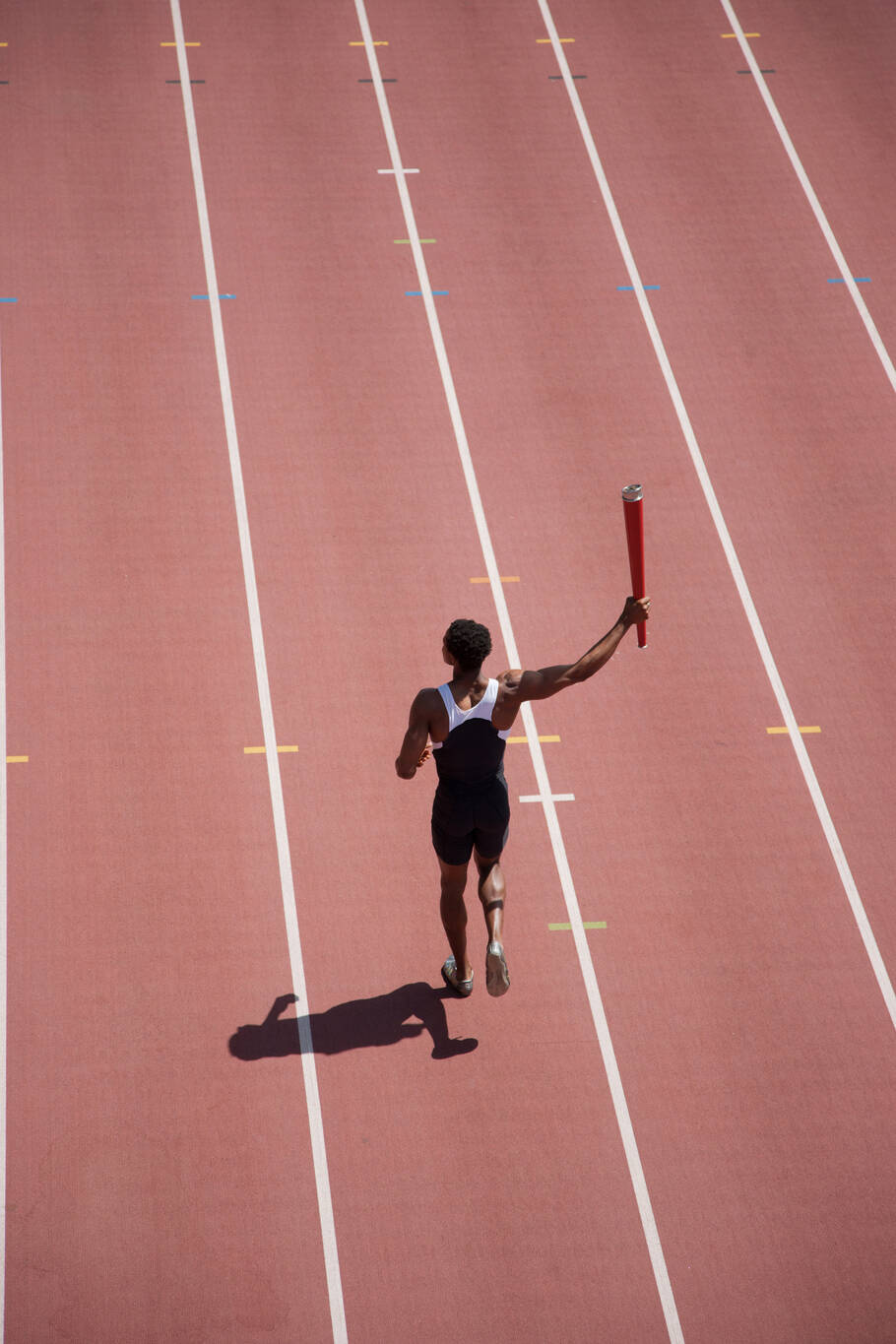Olympic Athlete Noah Lyles Defines His Life On His Own Terms
When Noah Lyles arrived at the postponed Tokyo Olympics, he was the reigning world champion of the 200-m sprint and the favorite to win the gold medal, with the expectation that he’d be the first American to take the event since 2004. Instead, he ended up coming in third, taking the bronze.
When reporters asked him how he felt, the son of motivational speaker Keisha Caine made no effort to hide his disappointment in his performance, telling them it was “boring” to get the bronze. “I didn’t win,” he continued, “Everybody wants to win when they come, right?” However, as he continued talking, the conversation took an unexpected turn to the topic of mental health.
Tackling the stigma of depression
Lyles shared that he had stopped taking his antidepressants during the Olympic trials, as he had the sense that they were having a negative impact on his performance. However, coming off the prescription medication caused mental difficulty for the sprinter. As he spoke to reporters, he became emotional as he recalled how difficult the past year had been for him.
Lyles planned to run in the Rio Games with his younger brother Josephus after watching the London Olympics together, but his brother sustained an injury before the trials, and Noah came in fourth, barely missing the team. Then, in 2019, Noah won the 200m in the world championship, and though his brother competed in the trials, he didn’t make the final. “It’s been really hard for him,” Lyles said. “…I feel like this isn’t even my dream. In 2012 my brother had the dream he was going to come to the Olympics. I really just tagged along for the ride. And sometimes I think to myself that, you know, this should be him.”
The growing conversation around mental health in sports
In recent years, more athletes have come forward and spoken out on the importance of addressing mental health. Simone Biles, J.V. Sindhu, Naomi Osaka, and others have positively protected their mental health and used their platform to share what they’ve learned from others. Some athletes have shared that watching Noah Lyles's frank and open discussions of depression, antidepressants, and therapy (Lyles has been seeing a therapist since childhood) has offered hope and given them the strength to reach out for help.
Despite the challenges of depression, Lyles has not allowed it to push him away from his sport or take away from the honors he’s achieved. Since his record track performances at T.C. Williams High School, he continues to pursue personal bests and is currently seeking the title of “fastest man on earth.” He would be the first man from America to hold this title in the past 28 years. Lyles won gold in three events in the world championships held in Hungary last August (a feat last achieved by Usain Bolt in 2015) and posted the fastest time in the world in the 200m at the Olympic Track and Field trials in Eugene, Oregon, making four gold medals in the past year. Videos have been shared all over the internet, with fans marveling at his speed.
On the road to the Paris Olympics this season, Lyles told reporters that the sadness he felt at the last Olympics brought him to where he is today. It fueled his drive and had him asking himself how he could do better. He also notes that winning the world championships was a confidence booster.
It’s okay not to feel good: Reaching out for help
Noah Lyles's honest discussion about his mental health on Twitter, YouTube, and other media platforms may be an indicator of positive change in the discussion around mental health issues in the US and the world at large. Not so long ago, athletes may not have been comfortable openly sharing their challenges, nor would the public be as ready to receive this information positively.
Depression can lead to several mental, emotional, and physical symptoms that can negatively impact an individual's life and relationships, including:
- Anhedonia (a loss of interest in activities you once enjoyed)
- Sadness
- A sense of worthlessness
- Disproportionate feelings of guilt
- Thoughts of hopelessness
- Muscular aches and pains
- Headaches
- Sleep issues
- Self-harm and suicidal ideation
If you’re experiencing symptoms of depression, seeking help can be a way to cope and move forward. Depression is a highly treatable condition, and you don’t have to be diagnosed to see a therapist.
Support options
While the conversation is shifting, a stigma exists around seeking help. However, many evidence-based therapeutic approaches are available to support people with conditions like depression, such as cognitive-behavioral therapy (CBT). CBT has been proven effective in treating several mental health conditions. Therapy isn’t necessarily to “fight through” or “get over” negative feelings. Instead, therapy can help you build your coping skills and receive empathetic care.
For those who may find it challenging to get to in-person therapy appointments, online therapy can offer a convenient and effective solution. Studies show that online therapy can be as effective as in-person therapy, and online platforms like BetterHelp allow clients to connect with a therapist via phone, video, or live chat sessions from home. In addition, some platforms offer access to complementary weekly support groups.
Takeaway
Depression doesn’t define who you are. Managing symptoms can help you achieve personal and professional goals and live the best version of your own life. Consider contacting a therapist online or in your area to receive support as you move through this journey.
Thanks for the feedback!
- Previous Article
- Next Article
